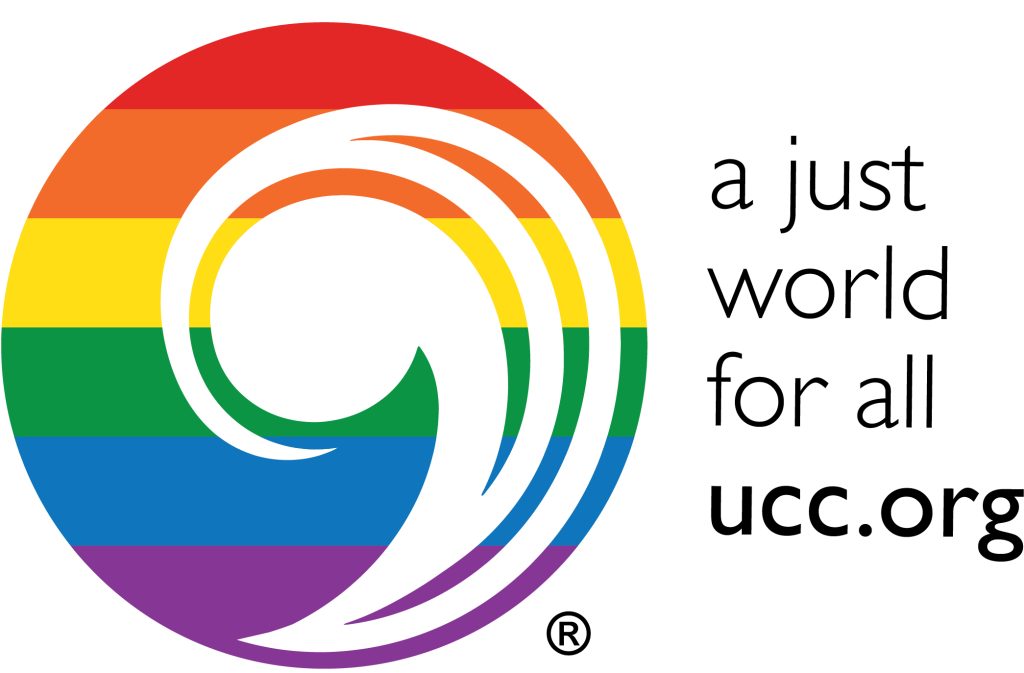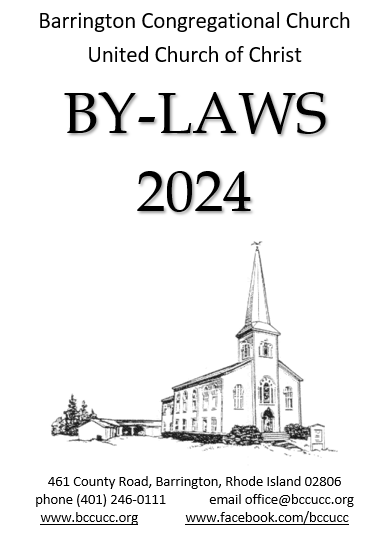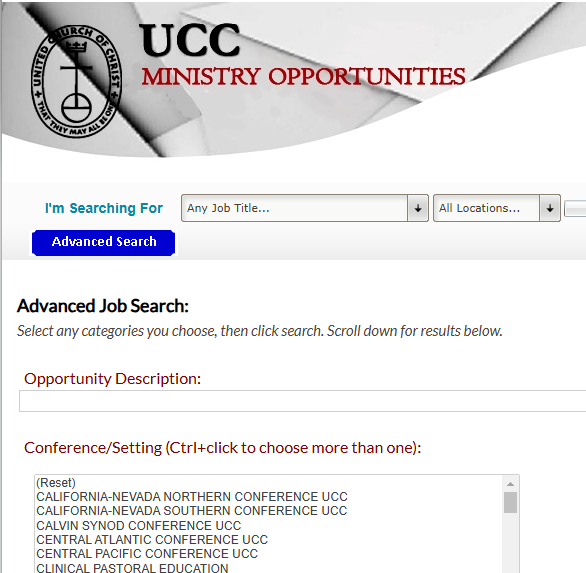by Rev. Dr. Dale Azevedo, Sr. Minister
With the recent announcement of my retirement from church ministry, I thought it might be helpful to talk about how pastoral transitions typically work in congregational churches.
Now, every Christian tradition handles a change in pastors differently. In some traditions, like Roman Catholic and United Methodist, the local congregation has little to no say on who their next pastor will be. In these traditions clergy are appointed by a bishop and sent to the local church. In other denominations, like Episcopal and Presbyterian churches, the new pastoral assignment is a joint decision between the congregation, the regional judicatory body, and the individual minister. And in still other denominations, like non-denominational and congregational churches, the pastoral “call” is an independent agreement between the local church and incoming minister. The judicatory body has no formal say in the hiring process. As a member of the United Church of Christ (UCC), BCCUCC is a congregational style church, and therefore makes a hire independent of the larger denomination.
This is not to say that the denomination, or conference, has no role in the selection of BCCUCC’s next pastor. One of the benefits of being in a denomination (a gathering of affiliated congregations) is that the  denomination has resources to help the local church. One of the most important resources a UCC conference provides is assistance in the “search and call” process. The denomination credentials and vets (i.e. “authorizes”) candidates for ministry. The national offices provides portals for “authorized” minsters and member local churches to find one another. And finally, the regional conference also provides staff to assist the local church through the sometimes overwhelming process of selecting a new minister. Saying that, in our tradition, the final decision on hiring (or “calling”) a new minister is made solely by the local church.
denomination has resources to help the local church. One of the most important resources a UCC conference provides is assistance in the “search and call” process. The denomination credentials and vets (i.e. “authorizes”) candidates for ministry. The national offices provides portals for “authorized” minsters and member local churches to find one another. And finally, the regional conference also provides staff to assist the local church through the sometimes overwhelming process of selecting a new minister. Saying that, in our tradition, the final decision on hiring (or “calling”) a new minister is made solely by the local church.
So what does this process look like?
(Actually, before I get into what BCCUCC’s process may look like, I need to be clear about something. My role in this process, as the outgoing minister, is very limited. In short, I have no official role in the selection of a new minister and my main responsibility is to “butt out” and allow the church, with support from the denomination, to take the lead in moving forward. So my goal in this blog is to lay out a typical process for transition and how BCCUCC’s by-laws further clarify that process. The Governing Board and Deacons have already begun conversations defining the specifics of BCCUCC’s process and will share more details in the coming weeks and months. They intend to be as transparent as possible about the church’s process and are aware that I am writing this blog as a foundation for their later reporting.)
It is important to first recognize that because we are a congregational style church, the process can be a bit different from one church to the next. This is because each church is governed by their own set of by-laws which governs the process. However, while each church can have differences in their process, there is a common pattern that our churches follow.
In our tradition, it is extremely common, almost universal, that each “settled” pastorate is followed by an “interim” period. An interim pastor typically serves  for 1-3 years guiding the church through the process of selecting a new settled minister. The interim minister is often responsible for guiding the local church through a period of discernment and evaluation. The interim will help the church explore questions such as, “Who are we?”, “What is important to us?”, “Who do we want to be?”, “What do we need to change in order to get there?”, and finally, “What are we looking for in a new pastor?” The interim’s job is to come into the church, help the members develop a roadmap for the future, and then step away, allowing the new settled minister to live into that vision with the congregation.
for 1-3 years guiding the church through the process of selecting a new settled minister. The interim minister is often responsible for guiding the local church through a period of discernment and evaluation. The interim will help the church explore questions such as, “Who are we?”, “What is important to us?”, “Who do we want to be?”, “What do we need to change in order to get there?”, and finally, “What are we looking for in a new pastor?” The interim’s job is to come into the church, help the members develop a roadmap for the future, and then step away, allowing the new settled minister to live into that vision with the congregation.
In Article IV.D.3., the BCCUCC by-laws state that in the event of a pastoral vacancy, “[t]he Deacons shall ensure that pastoral care and preaching is provided until a successor is called…” This means that in the event of short term vacancies, the Deacons are responsible to find pulpit supply and pastoral care support. In permanent vacancies, such as when I leave, this indicates that the Deacons are responsible for working with the conference to find a suitable interim minister to guide the congregation until a settled pastor is called.
Once an interim pastor is in place, and the congregation feels it is ready to begin the search for the new settled pastor, a search committee is formed. Search committees are unique to each individual church, but often try to represent a cross-section of the congregation’s membership. The search committee works with the regional conference leadership to move through the search and call process. This process begins the with the writing of a “church profile” and culminates with a formal call to a new minster. The entire process often takes 12-18 months. In some instances it can take longer.
In our by-laws, Article IV.D.2.a. states that the Deacons are largely responsible for selecting the search committee. The qualifications of the members of the committee are also laid out in this paragraph as well as a note that the search committee members must be approved by a congregation-wide vote before their work can begin.
Writing a church profile is a time consuming process. The search committee tries to condense the entire history and present reality of the church in a 20-30 page document. The document covers past/present conflicts, recent successes, financial and demographic details, as well as the hopes, dreams, and faith of the congregation. It is not an easy task and takes many hands and brains to make it work.
When the profile is complete, it is uploaded to the denominational portal and pastors are invited to apply. The search committee then sifts through all the applicants and begins the interview process. This process can take months as there are normally a series of interviews, beginning remotely and later moving to in-person interviews. There are a lot of schedules to juggle and travel arrangements to make, so this process often moves much slower than everyone would appreciate. However, this can actually be a blessing as it can be difficult for the search committee members to come to consensus on a candidate, and time, conversation, and give-and-take are often required.
this process often moves much slower than everyone would appreciate. However, this can actually be a blessing as it can be difficult for the search committee members to come to consensus on a candidate, and time, conversation, and give-and-take are often required.
Once a final candidate is selected by the search committee, they arrange for what is called a “candidating weekend.” This is a time where the chosen candidate comes and stays locally with the church for an entire weekend meeting various leaders and constituents of the church and learning more about the community. The weekend culminates on Sunday morning when the candidate leads worship and preaches. This service is immediately followed by a congregational meeting in which the congregation votes whether or not to accept the candidate and “call” them to be the next settle minister. This sounds bizarrely public to many people and can also be a wildly stressful experience for everyone involved. However, the hope is that if the search committee and candidate have done their work well leading up to the vote, there are no surprises. Although it does happen, rarely.
This vote is authorized in Articles III.A. and IV.D.3. in BCCUCC’s by-laws.
This rather long blog, is just a quick snapshot of what the typical search and call process looks like. AS I stated above, the process the BCCUCC will eventually take, may ultimately be different than this. However, this should give everyone a basic understanding of the months to come. The Governing Board and Deacons are hard at work planning for that future, and look forward to sharing with you more information as I becomes available. In the meantime, Laura Ward (Governing Board Chair), Pat Stoddard (Deacon Chair) as well as all other members of their groups, are available to talk and answer any questions you may have.



